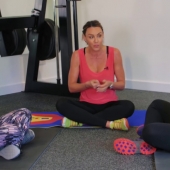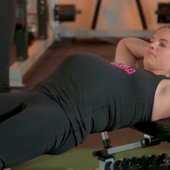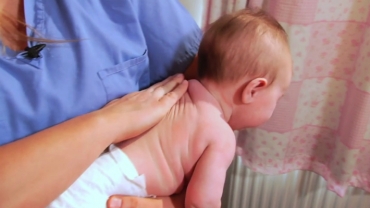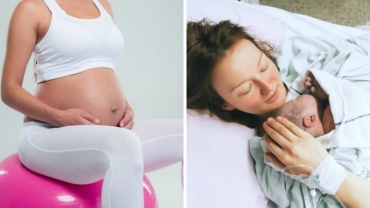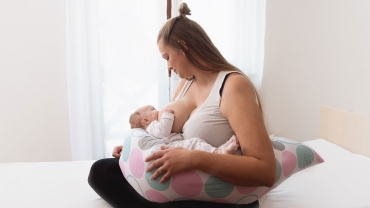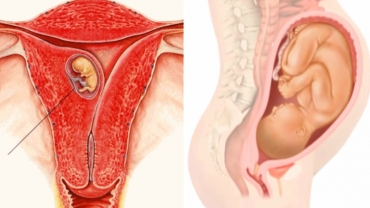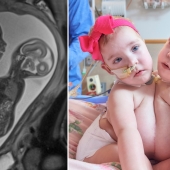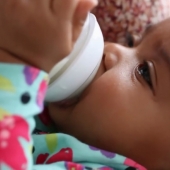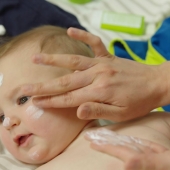During the early postnatal period we aim to provide the best possible care to you and your baby to assist with the smooth transition to Parenthood. If you have had a home birth, midwives will stay with you until your baby has fed and you have passed urine.
If your baby was born in hospital the length of stay can be from 3 to 48 hours. The amount of time you will be advised to stay will depend on the type of birth you've had your recovery and how well your baby is feeding.
The midwives will discuss your transfer home to the care of the community Midwife. Please ensure you give the hospital staff the correct address and phone number for where you are going home to and the correct details of your GP whilst in hospital. We suggest you get as much rest as possible eat and drink well.
Please take any medications prescribed for you and continue to take them at home if necessary. Do not hesitate to ask if you need further information about taking medication. Your personal hygiene is essential in the postnatal period to keep you and your baby safe and well.
All women should wash their hands both before and after changing their sanitary towels to reduce the risk of infection. We ask that your family and visitors respect the visiting hours to ensure that mums and babies get as much rest as possible. Contact numbers for your Midwife in your hand held notes together with emergency numbers should you need them.
You will be advised at the frequency and location of your postnatal checks. If you are being seen at home. Community Midwife can visit anytime between nine and five including weekends and bank holidays. They cannot specify what time they will get to you due to the scheduling of their clinic and other word to moms.
Community midwife will see you the day after you come home and will ask about your health, how you are feeling and give appropriate advice. During postnatal visits the midwife offers examinations to assess you are well and recovering from the birth both physically and emotionally.
Your breasts may become full and possibly uncomfortable a few days after the birth and this is normal however a painful hard red patch on your breast and feeling unwell with a high temperature or flu-like symptoms can be a sign of mastitis and you need to seek advice. The numbers for this are in your handheld notes. Midwife will palpate to feel your uterus to assess that it is returning to normal after your pregnancy.
You will be asked about your blood loss which will normally continue for between two to six weeks after the birth. If your blood loss suddenly becomes very heavy it is important to seek urgent medical care. If you experience abdominal pain, offensive smelling, blood loss, developing temperature or our passing cloth, please contact your midwives or seek medical advice.
The Midwife will ask if you are passing urine normally and whether you are having a bowel open. It can take up to three days for you to have a bowel movement after giving birth. If you have had stitches these should be examined regularly by the Midwife as you may not be aware.
If they are not healing probably it will be asked to look for any pain or swelling in your legs which could alert us to the development of the thrombosis or blood clot. This is a complication which needs urgent medical advice. It is not unusual for the baby's skin to become a little blotchy red or dry and we advise using plain water on the skin for the first mounth of life. It is not unusual for a baby to develop jaundice.
The skin and whites of the eyes may look yellow. If this happens the midwife will assess the baby and decide if the baby needs to return to the hospital for further investigations or treatments. Frequent feeding taking place at least 8 to 12 times each 24 hours helps to minimize jaundice. If the investigation shows that the jaundice level is high, the baby may need photo theraphy treatment with ultraviolet light.
The baby's eyes and mouth will be checked to ensure that they are healthy. The Midwife will check the baby's umbilical cord to ensure the clamp is secure and that there are no signs of infection. The cord will normally separate around eight to ten days after the birth.
The Midwife will undertake a feeding assessment and will be able to assist you in your chosen method of feeding. Finds that the baby is feeding well our frequent wet nappies and stools that change from black tari meconium to brown and then yellow by day four. If breastfeeding the stool is often a runny consistency and more solid with artificial feelings the
Midwife or maternity care assistant will see you and your baby on day five to repeat the examination previously described plus weighing the baby and taking a newborn screening blood sport test. Most babies will lose weight in the days after birth and we will check that weight loss is within normal limits. Some babies may be back to their birth weight by ten days of age you will also see the Midwife when the baby is 9 or 10 days old.
The Midwife will repeat the postnatal examination as before and where your baby again.Postnatal exercises registering the birth maybe and contraception what we discussed along with any concerns you may have if all is well care will be handed over.
- 3706 views


